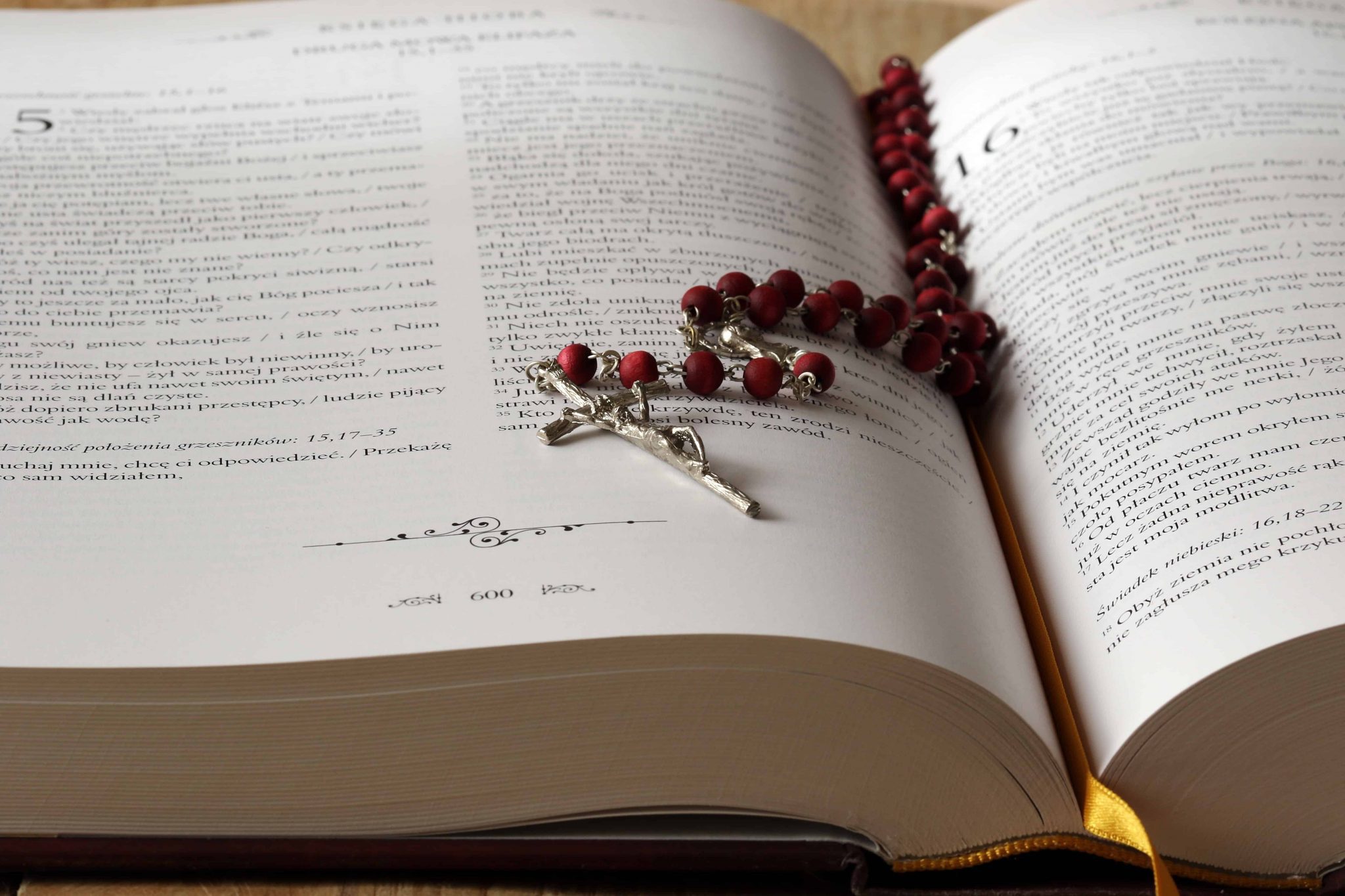Third Sunday in Ordinary Time
During the anointing at Baptism, the new Christian is told of their status as “a member of Christ who is Priest, Prophet, and King.” We have been anointed to bring the good news of salvation to all, but especially the poor. As you begin another week, consider the ways you may fulfill this Scripture passage. How can you bring sight to the blind, freedom to the oppressed, and release to captives? Sealed with the Spirit, we have a mission to help others see the Lord in their life.
Second Sunday in Ordinary Time
Jesus turns water into wine as the first of the signs that reveal his glory in the Gospel according to John. The signs help us to see Jesus in the fulfillment of the restoration of Jerusalem. We know from the beginning of his ministry that the one who will call his disciples and us to follow him fulfills God’s covenant to Israel. On this initial Sunday in Ordinary Time, we begin to believe anew in him as the disciples began to believe for the first time.
The Baptism of the Lord
On this last day of the Christmas season, we can receive in a new way the outpouring of the Spirit. Like Jesus, we must go to our Jordan and meet our St. John the Baptizer. There’s a person and a place that the Lord has chosen to be instrumental in lavishing His Spirit on us (Ti 3:6). Like Jesus, we will have to deny and humble ourselves to be at the right place at the right time (Mt 3:15). We will struggle interiorly to “let it be done” to us (Lk 1:38).
Let’s resist our resistance to the Spirit. The Lord wants to give the Spirit to us much more than we want to receive Him. If we would only want the Spirit more than we want our own way! Jesus, the Baptizer in the Spirit (Mk 1:8), is so quiet and gentle, “not crying out, not shouting, not making His voice heard in the street” (Is 42:2). It’s so easy to brush Him off, stifle the Christmas Spirit, and miss the opportunity of a lifetime. Yet, if we want to, we can hear Jesus breathing on us the words: “Receive the Holy Spirit” (Jn 20:22). The Spirit descends quietly as a dove (Mt 3:16), noticeable only to those who want to notice.
“My point is that you should live in accord with the Spirit and you will not yield to the cravings of the flesh” (Gal 5:16).
The Epiphany of the Lord
The wise men found the infant Jesus in a house some days after Jesus had been born in a stable. Their coming may have occurred around the days of Jesus’ Presentation in the Temple forty days after His birth when Simeon prophesied that Jesus was both “a revealing Light to the Gentiles” and “a Sign of contradiction” (Lk 2:32, 34, our transl). Possibly the wise men were wise because they did not contradict Jesus, a Sign of contradiction.
Because they believed the star of Bethlehem was announcing the birth of the King of the Jews, the wise men followed the star, prostrated themselves before Jesus, and “presented Him with gifts of gold, frankincense, and myrrh” (Mt 2:11). The actions of the wise men did not contradict Jesus. However, Herod, after having said he would offer Jesus homage (Mt 2:8), contradicted himself and tried to murder Jesus (Mt 2:16).
We too contradict Jesus and ourselves when we say:
- we believe in God, but we don’t tell others about Him,
- we receive the Body and Blood of Jesus in Holy Communion, but we don’t center our lives on receiving Communion,
- the Bible is the Word of God, but we don’t read it daily, and
- prayer is communicating with God, but we don’t set aside a daily prayer time.
There may be other contradictions in our lives. Yet the wise men and women are not contradictory; they are prostrate in worship of Jesus.
